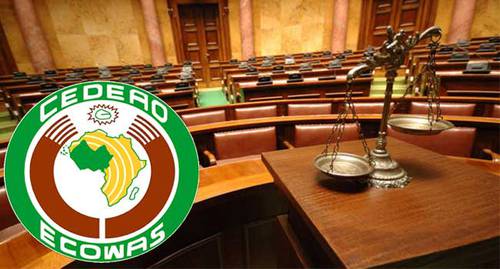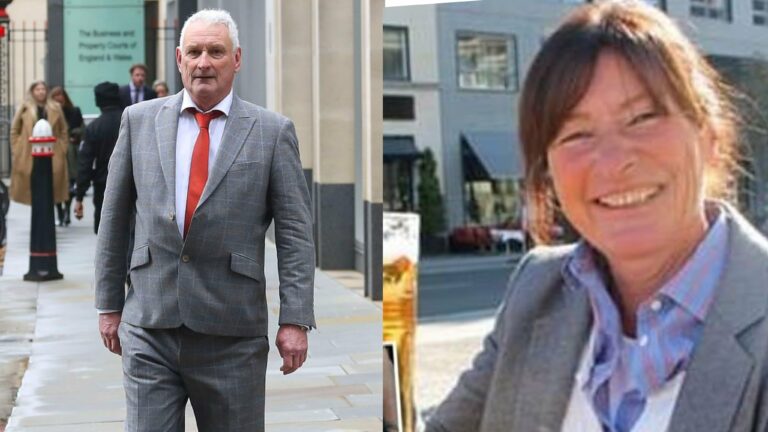
The Facts on ECOWAS Resolutions on Niger Coupists
Following the coup plot which ousted the democratically-elected President Mohamed Bazoum of Niger Republic, the Economic Community of West African States (ECOWAS) held an emergency meeting whose outcome condemned the situation and announced measures to be taken by the regional bloc to restore democracy in the country.
At the summit, chaired by Nigeria’s President Bola Tinubu, immediate sanctions were announced on Niger. These include the closure of land and air borders between ECOWAS countries and Niger; the establishment of a no-fly zone on all commercial flights to and from Niger; the suspension of all commercial and financial transactions between ECOWAS Member States and the military government of Niger; the freezing of assets of the Republic of Niger in ECOWAS Central Bank, as well as Niger state enterprises, and parastatals in commercial banks.
The summit also announced that Niger would be suspended from all financial assistance and transactions with financial institutions within ECOWAS.
In addition, as a direct consequence of their action, travel bans and asset freezes were imposed on military officials involved in the coup, as well as their family members and civilians who accept to participate in any institution or government established by these military officials.
Regardless of these immediate measures, ECOWAS has also constantly expressed its desire to ensure that the situation in Niger is resolved through diplomatic means and true to that commitment, diplomatic channels have been opened between the commission and the putschists. For instance, a 15-member delegation was sent to Niger within days of the coup in search of an amicable resolution.
With all these measures in place, it is unfortunate that the angle to which ECOWAS’s response is being reported given media coverage and public scrutiny is that part where the coup plotters were given a one-week ultimatum to restore Bazoum to power or risk possible military intervention.
Those who understand Ultimata and Coercive Diplomacy would appreciate the parlance used in ECOWAS’s response, not as a reckless mulling of military invasion as is being speculated, but as a tactful tool that subtly sends a message used to strengthen the bloc’s position on the negotiation table.
Nigeria, as the region’s powerhouse, understands the complexity and consequences of military deployment, especially to such a country as Niger which has borders with seven African countries, including itself, Libya, Chad, Algeria and Mali – all with very massive territories.
The importance of the country in the fight against insurgency and violent extremism is also not lost on Nigeria and ECOWAS, as well as the international community.
This is why the international community, including the USA and France, has been unanimous in support of ECOWAS and its response to the coup so far. Note that Niger is not only the largest recipient of USA military assistance in West Africa, but it is also host to over 2,000 Western troops. And in solidarity with ECOWAS, many Western countries have announced the cancellation of aid and cooperation agreements with the military administration.
Linda Thomas-Greenfield, the US envoy to the UN, told Al Jazeera that the United States recognised Bazoum as the legitimate leader of Niger the Biden administration supported ECOWAS to find a path forward in resolving the situation. “We are engaging diplomatically with countries in the region and at the United Nations to condemn what this military has done, and we will continue to keep pressure on them until they make the decision to allow this democratically elected government to resume its place,” Al Jazeera reported.
ECOWAS Commissioner for Political Affairs, Peace and Security, Abdel-Fatau Musah, was also clear about the path the bloc was towing when he said, “We want diplomacy to work, and we want this message clearly transmitted to them that we are giving them every opportunity to reverse what they have done.”
Briefing members of the diplomatic corps in Abuja on August 4, the Permanent Secretary of the Ministry of Foreign Affairs, Adamu Lamuwa, further clarified Nigeria’s stance to exhaust all diplomatic avenues in finding a lasting solution to the crisis.
Most significantly, at the end of their three-day meeting in Abuja over the matter, ECOWAS Chiefs of Defence Staff resolved to place dialogue at the forefront of the regional body’s approach to resolving the crisis in Niger Republic. The meeting drew Defence Chiefs from Nigeria, Benin, Ghana, Togo, Sierra Leone, Liberia, The Gambia, Côte D’Ivoire, Cape Verde, Senegal, and Guinea Bissau.
The chairman of the region’s Defence Chiefs, General Musa Christopher, noted that although the committee recognised the gravity of the situation and the urgent need for a well-coordinated response, all diplomatic measures should be explored.
“We must intensify our diplomatic efforts to engage with all relevant stakeholders. Dialogue and negotiation should be at the forefront of our approach to resolving the crisis in the Republic of Niger. We must engage with the transitional authorities, civil society organisations, and other key actors to foster an inclusive and peaceful transition process.”
It is also worthy of note that in the previous three situations when ECOWAS has had to successfully reverse a military takeover over the last decades in Sao Tome and Principe, Sierra Leone and The Gambia, it had done so solely through the use of diplomacy.
Thus, nothing suggests that Nigeria and ECOWAS are beating the drums of war on the situation in Niger and fifth columnists should desist from making it look so.
Zakari Usman writes from Abuja.
Kidnapped School Children
Yauri FGC Students, Kebbi (Freed)
The last victims released spent 707 days from June 17, 2021 – May 25, 2023
Baptist School Students, Kaduna
764 days 11 hours 6 minutes 17 seconds
Tegina Islamiya Pupils, Niger (Freed)
Spent 88 days from May 30, 2021 – August 26, 2023






